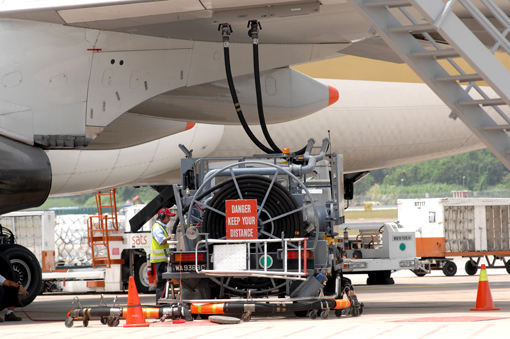Sounding a cautionary note amidst widespread optimism about “green” aviation, a new report from the U.S. Government Accountability Office (GAO) highlights the cost, regulatory and other issues hampering commercial-scale production of advanced biofuels. The GAO concludes that the targets of the U.S. Renewable Fuel Standard (RFS) programme — which calls for greater use of advanced biofuels to reduce greenhouse gas emissions and expand the U.S. renewable fuels sector — are unlikely to be met.
The report reviews the support given to research and development (R&D) related to advanced biofuels through direct research or grants, and notes that the focus is shifting away from cellulosic ethanol and toward “drop-in” biofuels, i.e. fuels such as renewable gasoline which are fully compatible with existing infrastructure, such as vehicle engines and distribution pipelines. In fiscal years 2013 through 2015, the federal government obligated more than $1.1bn for advanced biofuels R&D.
The report cites experts who note that several advanced biofuels are technologically well understood and some are being commercially produced. However, they point out that there is limited potential for increased production in the near term and underline several factors that will make significant increases challenging.
Among the report’s other conclusions:
• Biofuels that are technologically well understood include biodiesel, renewable diesel, renewable natural gas, cellulosic ethanol, and some drop-in fuels. A few of these fuels, such as biodiesel and renewable diesel, are being produced in significant volumes, but it is unlikely that production of these fuels can expand much in the next few years because of feedstock limitations.
• Current production of cellulosic biofuels is far below the statutory volumes and, according to experts, there is limited potential for expanded production to meet future higher targets, in part because production costs are currently too high. Experts told GAO that technologies for producing other fuels, such as some drop-in fuels, are technologically well understood but that these fuels are not being produced because production is too costly. Among the factors that will affect the speed and volume of production, experts cited the low price of fossil fuels relative to advanced biofuels.
• This disparity in costs is a disincentive for consumers to adopt greater use of biofuels and also a deterrent for private investors entering the advanced biofuels market. Experts also cited uncertainty about government policy, including whether the RFS and federal tax credits that support advanced biofuels will remain in effect. While such policies should encourage investment, investors do not see them as reliable and thus discount their potential benefits when considering whether to invest.

